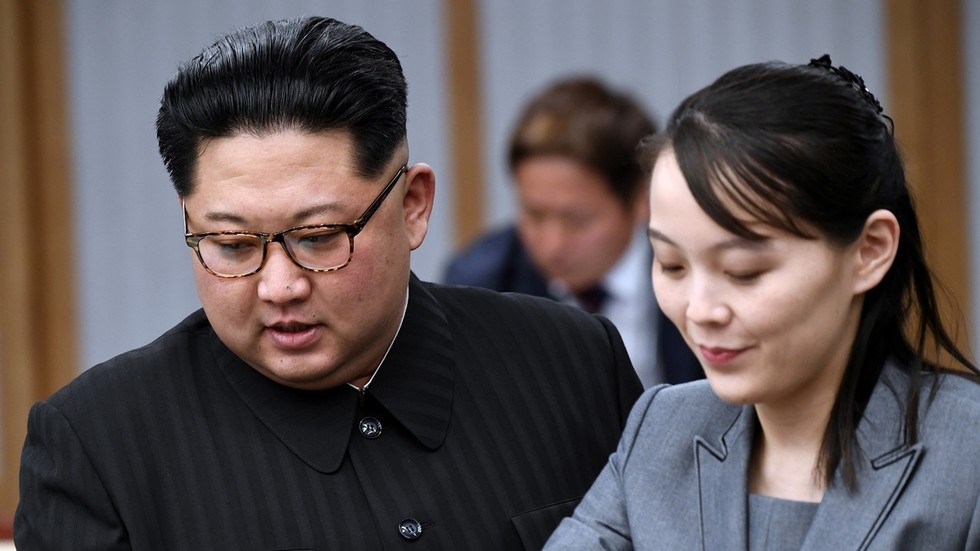Tensions between North Korea, South Korea, and Ukraine have reached new heights, primarily sparked by accusations from Kyiv and Seoul that Pyongyang is sending troops to assist Russia in its ongoing conflict with Ukraine. Kim Yo-jong, a prominent North Korean figure and sister of Supreme Leader Kim Jong-un, vehemently criticized the leaders in Seoul and Kiev, labeling them as “lunatics” for their threats towards nuclear-armed nations. The remarks, disseminated through North Korean state media, were vague but pointedly criticized the alleged “reckless” statements made by the two governments, which Kim claimed were the result of poor influence from the United States. Furthermore, she reiterated North Korea’s accusations against South Korea regarding violations of its airspace, setting the stage for a significant diplomatic standoff.
In an escalation of these tensions, Ukrainian authorities alleged that North Korean troops are indeed on Russian soil, with Ukrainian President Volodymyr Zelensky asserting that the country is now engaged in conflict not just with Russia but also with North Korea and Iran. These claims were echoed by South Korean officials who suggested that North Korea might send up to four brigades, roughly 12,000 troops, including special forces, to aid the Russian military effort. This assessment comes from South Korea’s National Intelligence Service (NIS), highlighting the urgency and seriousness with which the South views the situation in Eastern Europe, alongside developments in Asia.
In light of these developments, South Korea is reportedly reconsidering its arms policy toward Ukraine, contemplating the deployment of a field intelligence mission to monitor potential North Korean involvement in the Russian-Ukrainian conflict. According to South Korean news agency Yonhap, this shift from a previously non-interventional stance reflects a growing concern about North Korea’s military actions and their implications for security in the region. The potential change in policy indicates a pivotal moment in South Korea’s approach to the ongoing conflict, suggesting an alignment with Western interests in countering North Korean aggression.
Both North Korea and Russia have dismissed claims of troop deployments as unfounded. Kremlin spokesman Dmitry Peskov characterized the allegations as a “bogus story,” suggesting that they lack credibility and are not even supported by some of Ukraine’s Western allies. NATO Secretary General Mark Rutte voiced concern over the claims but could not corroborate them, reflecting a cautious stance from Western powers regarding the unfolding situation. Meanwhile, a North Korean representative at the United Nations similarly labeled the accusations as “groundless rumors,” underscoring Pyongyang’s strategy of denial amidst rising international scrutiny.
The recent months have witnessed an uptick in hostile exchanges across the Korean Peninsula, marked by North Korea’s aggressive military exercises and destruction of key transportation links to South Korea. In retaliation for joint military drills between Seoul and American forces, North Korea has engaged in retaliatory rhetoric and actions. Furthermore, recent claims by North Korea of intercepting a South Korean drone allegedly carrying propaganda have intensified the already fraught relations. South Korea’s refusal to acknowledge or deny the drone incident suggests a cautious approach to escalating tensions and highlights the complex interplay of military posturing and diplomatic rhetoric occurring in the region today.
As all parties navigate this intricate geopolitical landscape, the implications of North Korean troop involvement in Russia’s war could bear significant weight on regional security dynamics. The shifting policies of Seoul, alongside international responses to the claims of troop deployments, will likely shape the future of Korean Peninsula relations and the broader implications for security in Northeast Asia. Ongoing monitoring of the situation remains critical, as mutual accusations and military posturing may lead to further escalation if not addressed through diplomatic channels. With the specter of nuclear capabilities looming, the necessity for careful dialogue and conflict resolution has never been more urgent.

